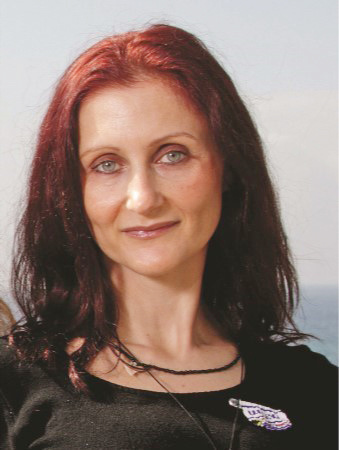click to dowload our latest edition
CLICK HERE TO SUBSCRIBE TO OUR NEWSLETTER


Published
1 year agoon
By
Rolene MarksSince 7 January this year, Israelis have been taking to the streets every Saturday night to protest against the proposed judicial overhauls. Armed with Israeli flags, which have become the symbol of the protests, and chanting “democratia” and “shame”, Saturday night protests have become a fixture in the weekly calendar.
From Eilat in the south to Haifa in the north, Israelis are exercising their democratic right to protest. It doesn’t matter if you support or object to the judicial overhaul, watching this display of democracy in action is extraordinary.
This is a pivotal moment in Israel’s history. Though there have been small pockets of scuffles between protesters and police, the protests have been peaceful.
Israel’s protest movement has inspired similar action in cities across the world including Rome, London, Paris, New York, Washington, and others. One could even say that the call to save Israel’s democracy is a bold reclaiming of Zionism, as these protests galvanise many who may disagree on a variety of issues, but have clearly united for this.
Most are of the opinion that this isn’t just a battle to save Israel’s democratic values but essentially, to save her soul.
There’s no doubt that the chasm between those who support the reforms and those who are protesting against them is growing wider. The most common misconceptions is that these protests are a rebellion against election results, or that it’s a “right versus left” battle or even a religious versus secular showdown. Some detractors have labelled protesters as “anarchists”, in an attempt to downplay the veracity of their claims.
In reality, the protesters represent a microcosm of Israeli society. They are young and old, religious and secular, Ashkenazi and Mizrahi, from the left to the centre, and even traditional Likud supporters and national religious citizens who live in Judea and Samaria.
Tel Aviv may be the epicentre of the protests, but on Saturday night, hundreds gathered peacefully in Gush Etzion and Givat Shmuel in Judea and Samaria, bearing the blue and white and singing “gesher tzar meod”. “All the world is a very narrow bridge, and the main thing to recall is to have no fear at all,” say the lyrics. This isn’t the image of the anarchistic, anti-government group many perceive the protesters to be.
Moreover, these protests aren’t a rebellion against election results. There are many who say that this is an expression of the majority who voted in the coalition government, but the parties who form the coalition received only small percentages of the vote – with the exception of Likud. There isn’t consensus in the Likud party either on the issue of judicial reform.
Likud stalwart and former speaker of Knesset, Yuli Edelstein, cautioned against the reforms, appealing to the government “to but the brakes on and compromise”. He emphasised that this was a concern of several Likud MKs. Edelstein wasn’t present for the first readings of the controversial override bill earlier this week, and has been sanctioned as a result.
The voices of dissent and caution are turning up the volume. One of Israel’s staunchest supporters, philanthropist Miriam Adelson, called the proposed reforms “hasty and irresponsible”. Israel’s allies are also expressing their concern. The United Arab Emirates has warned that it won’t purchase Israeli defence systems unless Prime Minister Netanyahu “reins in his government”.
One of the most vocal groups have been reservists from a host of different units in the army, navy, and air force. Israel’s military and security sector could be the most severely impacted by judicial reforms that could remove the Supreme Court’s ability to overrule any activity that could result in soldiers facing charges in the International Court of Justice. Israel’s military welcomes the necessary checks and balances.
The Netanyahu name is synonymous with the heroic actions of Yoni Netanyahu during the Entebbe operation in 1976. The soldiers who participated in the legendary operation wrote an open letter to Netanyahu and summed up the diversity of the protesters, saying, “We did the impossible together with brothers in arms, soldiers from Golani, paratroopers, intelligence, medicine, and media and Mossad agents. And again now, we’re all together in the protests while you do all in your ability to crumble the Israeli people.”
The hundreds of thousands of Israelis who are taking to the streets love their country. They are Zionists and patriots who want to see the state of Israel not only flourish, but continue to be the beacon of democracy it has been since its birth as a modern state 75 years ago. They are cautioning against reforms that would erode the civil rights of many and be to our economic detriment. Israelis are speaking up and increasing the volume. If only the ruling coalition would listen.

Brian Fink
Mar 16, 2023 at 12:57 pm
I’d like to make one correction; the protests in the north of Israel don’t stop at Haifa but go all the way up to the Lebanon border. I know this, because I live in Karmiel, which is north-east of Haifa, and I demonstrate regularly with many others.
Yoni
Mar 16, 2023 at 3:17 pm
Givat Shmuel is a city next to Petuach Tikva and Bnei Brak.
Gush Etzion is an area between Jerusalem and Hebron in Judea.